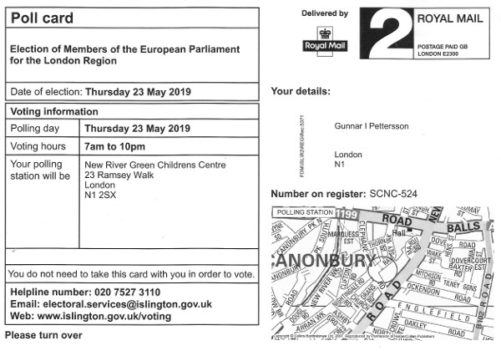Elisabeth Åsbrink skriver en lite konstig sak om Sverige i dagens The G. Jag fick just ihop ett insändarsvar, som säkert inte kommer in för det är nog för långt. Men här är det i alla fall:
Elisabeth Åsbrink (Guardian 14 May 2019) is not quite right in saying there were “no postwar legal or moral purges” of Nazi sympathisers in Sweden. The ‘Sandler Commission’, set up in 1946, looked into the often brutal way refugees had been dealt with, in particular the role of the Security Police. At the same time, the so-called ‘Assessment Board’ began vetting civil servants with “extreme political views”. Above all, the Swedish military saw widespread purges of Nazi sympathising officers, a process that lasted well into the 1950s. To be sure, some of these reckonings may have been legally rather toothless and their results ineffective – but was Sweden really unique in this respect?
I also find it odd that Åsbrink should claim a general ignorance in Sweden as to concessions made to Germany during the war. The sealed troop trains thundering back and forth to Norway were certainly no secret to people living on Sweden’s west coast; throwing rocks at them became something of a pastime for many. The passage of the Engelbrecht Division from Norway to Finland across northern Sweden in June 1941 was the subject of heated debate both during and after the war, as were of course Swedish exports to Germany up to and beyond Stalingrad. Ignorance of these matters, where it exists, is of course lamentable but you would really have to be extraordinarily deaf to the public debate of the past six decades in Sweden to have avoided them.
I do agree with Åsbrink that it could be claimed Sweden built up its postwar welfare state on its wartime profits, in particular health care and public housing. But, as with the concessions to Germany during the war, critics like Åsbrink (and she is not alone) never want to answer the question: what else should Sweden have done – and when? Denied the passage of Engelbrecht Division in ’41 and faced the very real risk of Germany occupying at least northern Sweden, so rich in raw materials? Should it actually have held back on the construction of the welfare state after the war? Why? Out of sympathy for our less fortunate neighbours?
I, too, used to feel a need to apologize for the fact that Sweden was never occupied by Germany during the war. Then, one day in the 1980s, I interviewed the late Henry Denham, Britain’s naval attaché in Stockholm during most of WWII. As I began to express a degree of shame over Sweden’s concessions to Nazi Germany, Denham held up his hand and said: “What else could they do? They had a job to perform, it was a difficult balancing act.” He was not just being polite.
Gunnar Pettersson



